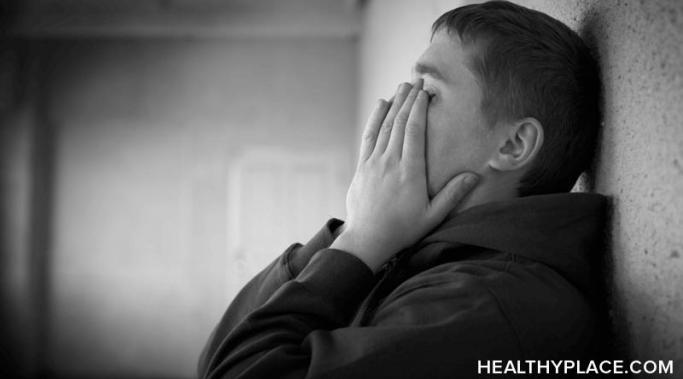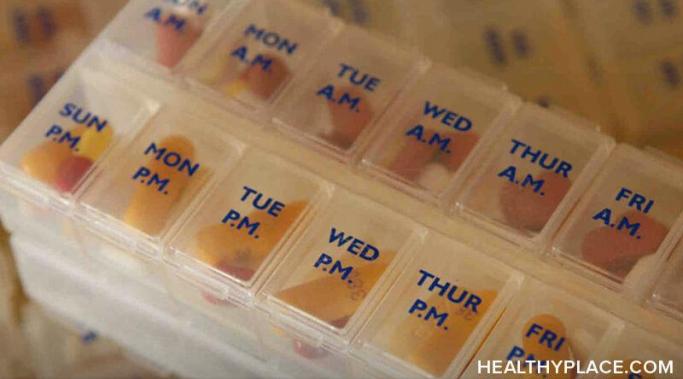My psychopharmacologist and I made a medication change, and now I’ve only heard schizoaffective voices once in over a month. Here’s what it’s like to bring this schizoaffective disorder symptom under control once again.
Schizophrenia Medications
A lot of people say that taking schizoaffective medication hinders their creativity. For me, this hasn’t been the case. Taking psychiatric medication keeps me stable and helps me stay productive—and ensures that the art I make is good.
In September and then again in January, I increased my antipsychotic for schizoaffective disorder even though I knew it would probably cause weight gain. And, it did. But I am much better off now mentally than I was before I made the changes, so I don’t want to decrease the schizoaffective medication just to lose weight.
It's 3:00 a.m. and I can't sleep. I'm sitting in the commons area of an eerily quiet psychiatric hospitalization unit while I recover from a relatively severe psychotic break. I wasn't going to blog this week because, well, the obvious. On top of that, all I have is pen and paper, no Internet access. But my wife still managed to post this week despite taking me to the hospital and picking up the slack in my absence. It is good to emulate one's heroes and I can think of no greater hero than my wife. I just wish I were a little more like her. But I have to remember that psychiatric hospitalization does not denote weakness.
I lost 20 pounds while on a medication for schizoaffective disorder that is infamous for causing weight gain. Here's how I did it.
Most people think that the reason taking medication for schizoaffective disorder is difficult is because of the side effects such as weight gain or fatigue. While these problems offer major factors, many other causes contribute to the challenge. What I’m going to focus on in this article is that taking medication for schizoaffective disorder can be physically hard to take and hard to organize. That said, I believe one of the reasons I’m doing so well after 20 years with schizoaffective disorder can be credited to my compliance with medication. Here are some tips I’ve picked up over the years that can make taking medication for schizoaffective disorder easier.
After a hiatus from politics, I’ve come to realize once again that I need feminism for my mental health. The reason I’m rediscovering it is directly linked to my schizoaffective disorder: Feminism helps me to accept the weight gain that comes with the atypical antipsychotic medications I take. And it gives me perspectives on a challenging time in our world as a whole.
My anxiety treatment is not working anymore. In the summer, I wrote about how I was decreasing my antidepressant to lessen my schizoaffective anxiety. That time, it worked (Taking an Active Role in My Psychiatric Medication Changes). But earlier this month when I tried to do the same thing for the same reasons, it didn’t work. I’m not sure why it didn’t help, but I have some ideas.
I took an atypical antipsychotic medication that makes you feel numb when I was first diagnosed with schizophrenia in 1999. It wasn’t until I was diagnosed with schizoaffective disorder, bipolar type and tried a mood stabilizer that my doctor allowed the antipsychotic dosage to be decreased. Finally, I felt like myself again.
How can we avoid disaster while partying when living with schizoaffective disorder? We all know that the desire to party is a fundamental aspect of life. Birthdays happen every year, and often parties are held for events such as Independence Day, Christmas, or even Thanksgiving, not to mention people's desire to engage in events such as raves and festivals. However, we all know that partying is usually associated with risky behaviors, such as drinking and taking drugs. This is often the last thing a schizoaffective person should be doing. So how can we avoid problems when partying with schizoaffective disorder?









